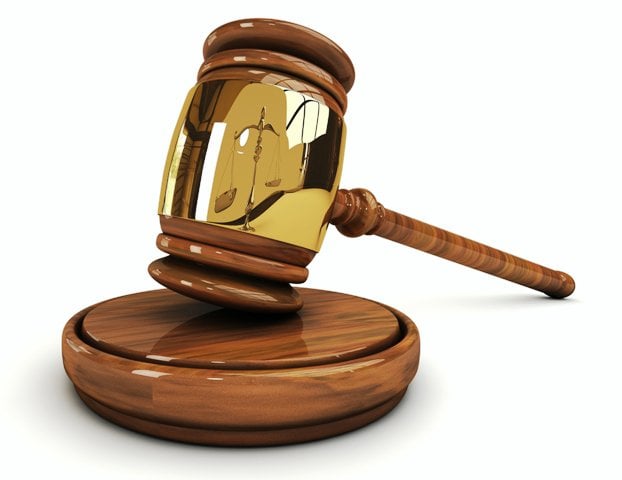ISLAMABAD: During a Monday case hearing, the sitting judges brought up a number of legal concerns regarding the Supreme Judicial Council’s (SJC) jurisdiction to investigate complaints against retired or resigned Supreme Court justices.
 Justice Jamal Mandokhel expressed worry that the fear of penalties for judges could impede the delivery of justice in cases involving them. He emphasized that the public’s right to justice was protected by judicial immunity, not for private gain.
Justice Jamal Mandokhel expressed worry that the fear of penalties for judges could impede the delivery of justice in cases involving them. He emphasized that the public’s right to justice was protected by judicial immunity, not for private gain.
The federal government appealed the SJC proceedings against the retired or resigned Supreme Court judges to a five-member bigger court chaired by Justice Aminuddin Khan.
Faisal Siddiqui, an amicus curiae, contended that this appeal could not be heard if the Supreme Court Practice and Procedure Act had gone into effect on October 11 rather than April 21. Judge Khan, however, advised the attorney to focus his arguments on the merits of the primary case rather than the validity of the appeal.
In response, Siddiqui said he merely wished to inform the court that the Supreme Court Practice and Procedure Act’s clause about retroactive applicability had been ruled invalid.
He asserted that judges were exempt from common laws. He maintained that if a judge was the subject of accusations of corruption, something could be done about it. But he also said that the judge’s retirement ended the SJC’s jurisdiction.
Justice Khan questioned whether the judge’s retirement marked the end of the SJC process. If Justice Mandokhel committed any crimes while serving as a judge, he maintained that his departure would absolve him of any charges.
Judge Irfan Saadat, who was seated on the bench, said that the case against the former chief justice had been resolved by the SJC. Subsequently, he inquired as to whether the SJC’s previous opinion precludes the proceedings from being restarted.
Justice Mandokhel questioned if the Chief Justice could consider a case against him in the SJC or hold the SJC hostage. Siddiqui said that the judge who was the subject of the complaint was required by law to recuse himself from the SJC hearings.
Siddiqui added, “Rules for inquiries are for the sitting judges only,” to the bench. Justice Mussarat Hilali, who was seated on the bench as well, commented that there was nothing in the inquiry guidelines about the judge who was the target of the ongoing proceedings.
Siddiqui went on to say that no one prevented organizations that fight corruption, such as the Federal Investigation Agency (FIA), the National Accountability Bureau (NAB), or other organizations, from looking into allegations of corruption against judges.
Judge Mandokhel made the observation that judges would be terrified if an institution brought legal action against them. According to Siddiqui, the government may change the Presidential Order, 1987, which would have removed the judge’s pension and benefits.
Subsequently, Moiz Jafari, another amicus curie, began his remarks by stating that the judiciary’s independence would be compromised if judges were subject to ordinary laws. He went on to say that judges would always be afraid that the NAB or the FIA would come after them.
He emphasized that the SJC may propose any action against judges; otherwise, on the day of his retirement, every judge would be appearing before a police inspector if the general guidelines were followed.
Jafari brought up the fact that the SJC’s recommendation to remove a judge was rendered useless upon the judge’s retirement or resignation.
Akram Shaikh, an additional amicus curie, countered that the SJC’s procedures against a judge could not be stopped after they had begun.
Shaikh stated that a judge’s misconduct and his inability to serve as a judge were two distinct things and that it would appear that the SJC was at the judge’s mercy if the procedures were to terminate when the judge resigned.










































